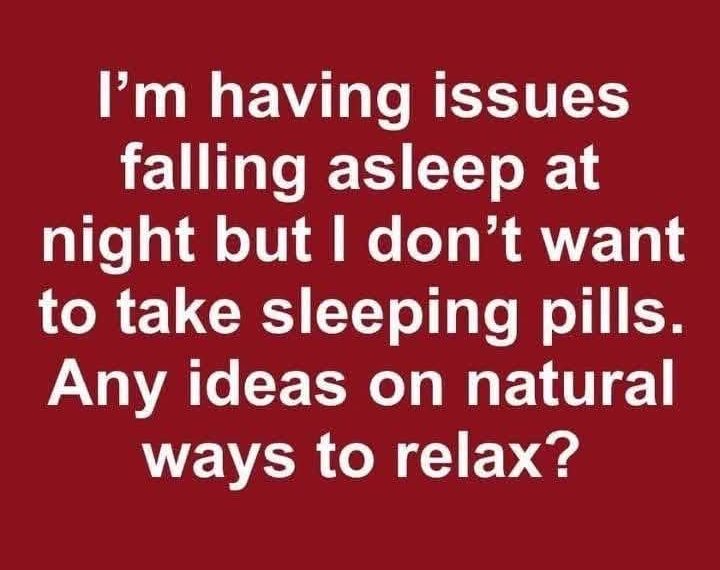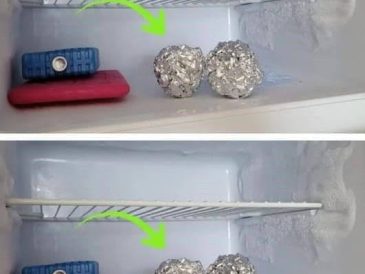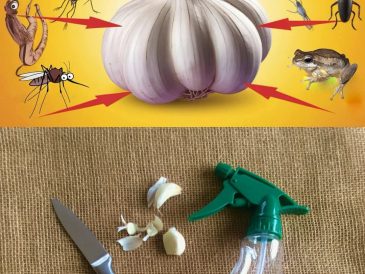Insomnia or trouble falling asleep is a growing concern in modern life. Many people, like the one in the image, want better sleep but don’t want to rely on pharmaceutical sleeping pills — and for good reason. While sleeping medications can be helpful in the short term, they often come with side effects such as dependency, grogginess, or reduced REM sleep.
The good news? There are natural, science-backed methods to help you relax and fall asleep without medication. Here’s what the research says, and how you can put it into practice.
🧘♀️ 1. Practice Mindful Breathing and Meditation
Deep breathing slows your heart rate and signals your nervous system that it’s time to rest. Mindfulness meditation has been shown to reduce stress and improve sleep quality.
✅ Evidence:
A study published in JAMA Internal Medicine (2015) found that mindfulness meditation improved sleep among adults with moderate sleep disturbances.
🧪 Try this:
🌿 2. Use Herbal Remedies and Teas
Certain herbs have mild sedative properties that can help relax the body and calm the mind.
Best natural sleep aids:
- Chamomile tea – reduces anxiety and helps promote sleep
- Valerian root – shown to improve sleep latency
- Lavender – calming scent; can be used in tea or essential oil
- Lemon balm – a gentle herb known to reduce restlessness
✅ Evidence:
A 2020 review in Advances in Therapy confirms that valerian may improve sleep quality without side effects of synthetic drugs.
📱 3. Limit Screen Time Before Bed
Blue light from phones, tablets, and TVs disrupts melatonin production, the hormone that signals your body to sleep.
🧪 Fact:
According to Harvard Health, blue light exposure at night suppresses melatonin twice as long as green light, disrupting circadian rhythms.
📵 Solution:
- Turn off screens 1 hour before bedtime
- Use “night shift” or “blue light filter” modes after sunset
- Try reading a physical book or journaling instead
4. Create a Sleep-Inducing Environment
A quiet, cool, dark room helps your body naturally prepare for sleep.
Pro tips:
- Set the room temperature between 60–67°F (15–19°C)
- Use blackout curtains and remove sources of noise/light
- Try aromatherapy with lavender or cedarwood oil
🧠 Your environment sends signals to your brain that it’s time to wind down.
🧴 5. Try Magnesium or Melatonin (Natural Supplements)
Magnesium:
- Helps muscles relax and regulates GABA (a calming neurotransmitter)
- Sources: Magnesium glycinate supplements or Epsom salt baths
Melatonin:
- A natural hormone that regulates your sleep-wake cycle
- Short-term use may be helpful for jet lag or irregular sleep
⚠️ Always consult a healthcare provider before starting supplements.
🚶 6. Move Your Body (But Not Too Late)
Regular physical activity helps you fall asleep faster and enjoy deeper sleep.
🏃 Best practices:
- Aim for 20–30 minutes of moderate exercise per day
- Avoid vigorous workouts within 2 hours of bedtime
✅ A 2018 study in Sleep Medicine Reviews found exercise improved both sleep duration and quality.
| Method | How it Helps | Science-Backed? |
|---|---|---|
| Mindful breathing | Reduces stress, slows heart rate | ✅ |
| Herbal teas (chamomile etc.) | Gentle, natural sedatives | ✅ |
| Avoiding screens | Maintains melatonin levels | ✅ |
| Calming environment | Supports circadian rhythm | ✅ |
| Magnesium & melatonin | Supplements that aid relaxation | ✅ |
| Light exercise | Improves deep sleep and reduces anxiety |
Final Tip: Establish a Bedtime Routine
Consistency is key. Going to bed and waking up at the same time daily — even on weekends — trains your internal clock to function better.
Try this nightly ritual:
- Light stretching or yoga
- Herbal tea
- 10 minutes of journaling or gratitude reflection
- Turn off lights and devices
- Deep breathing in bed
🌙 Conclusion
You don’t need to turn to sleeping pills to get a good night’s rest. With a few simple, natural lifestyle changes, you can ease your body into a restful state and enjoy more consistent sleep. Start small, be patient, and experiment with what works best for your mind and body.





